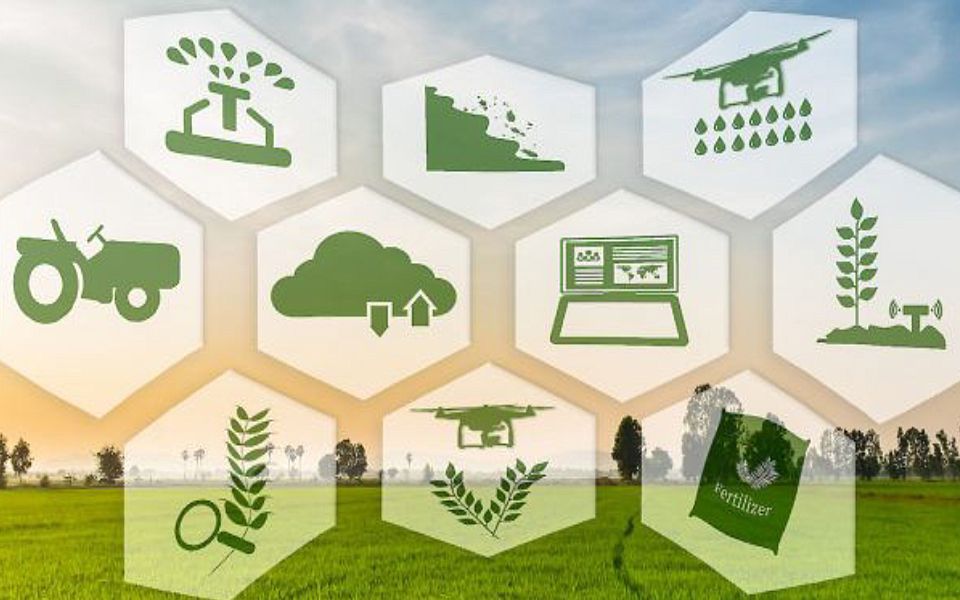 The use of blockchain technology in the agriculture and food supply chain sectors is currently estimated to be $61+ million and, according to ReportLinker, is projected to grow by 47% p.a. to reach $429+ million by 2025.
The use of blockchain technology in the agriculture and food supply chain sectors is currently estimated to be $61+ million and, according to ReportLinker, is projected to grow by 47% p.a. to reach $429+ million by 2025.This growth is being driven by customers demanding greater transparency as to where the food they buy is coming from, how sustainable it is and the environmental impacts of what they are consuming. Blockchain technology is ideal in tracking and tracing the provenance of goods whilst creating a secure database which, in effect, enables people to see who, where, how and what they are consuming. It can also be used both to ensure farmers are paid faster and to secure higher prices for the food they produce.
In the USA, big tech firms such as IBM and Microsoft and international retailers and food processors such as Walmart, McCormick & Co. and Dole Food Company are driving the use of blockchain technology in agriculture. In the food supply chains there are a number of key companies from a variety of jurisdictions such as IBM, Microsoft, Ripe.io in the USA, SAP-SE in Germany, Ambrosus in Switzerland, Arc-net based in Ireland, OriginTrail in Slovenia, VeChain from China, and Provenance and ChainVine from the UK, whilst from Australia, AgriDigital and BlockGrain are both active.
More recently we have seen Glencore joining a Blockchain-powered platform, called COFCO, which supports four of the world’s largest agribusiness companies. Archer Daniels Midland, Bunge, Cargill and Louis Dreyfus launched the consortium last year to modernise their processes with Blockchain and artificial intelligence (AI). Glencore is about to launch a project to look at the trade of soybeans from Brazil to China, has been exploring how it can improve the efficiency of its supply chains for grain and oilseeds using blockchain technology and AI.
In France, a technology company called Atos has just won an award for its Blockchain-based Crop Insurance Solution at the NATC (NASSCOM Annual Technology Conference). NATC is an India trade association. Farmers can use the Atos platform to speed up the processing and payment of crop insurance claims using Smart Contracts, which historically have relied on manual paper-based processes, thus cutting the time to settle claims from months to days. Atos has created a fully automated-claim settlement platform. This enables insurance companies to collate weather data through satellites and measure weather conditions (rainfall, drought, etc), which are then used to compensate farmers for crop losses.
Increasingly there are more examples that blockchain technology is being used in the agriculture market to help consumers, farmers, retailers, insurance companies and food processing firms across the world. In the last 18 months, we have seen Blockchain-powered proof of concepts and pilot projects being ‘ramped up’ and implemented into commercial-scale adoption. As we see AI, Big Data, Machine Learning and Internet of Things (IoT) technology develop further there is likely to be even greater use of blockchain platforms which will, in effect, act as a ‘skeleton’ linking these other technologies together in an increasingly digitised manner.


